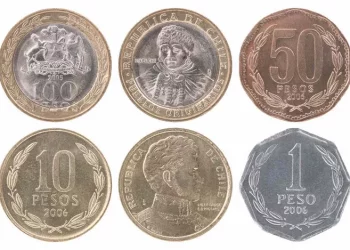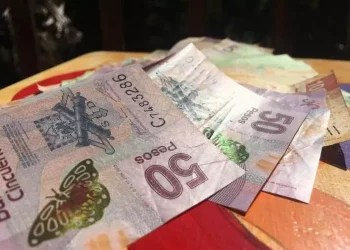In the dynamic world of international trade and finance, foreign exchange (FX) plays an integral role in maintaining economic stability and facilitating cross-border transactions. For many individuals and businesses, understanding currency exchange rates is crucial, as these rates impact everything from travel expenses to global investments. In this article, we will focus on a specific currency conversion question: how much is 100 Korean Won (KRW) in Philippine Pesos (PHP)? We will delve into the factors that influence currency exchange rates, the importance of the foreign exchange market, and practical tips for navigating currency conversions in both personal and professional contexts.
Understanding the Currency Pairs
To address the question of how much 100 Korean Won equals in Philippine Pesos, it is essential first to understand the concept of currency pairs and exchange rates. Currency pairs represent the value of one currency against another. In this case, the Korean Won (KRW) is paired with the Philippine Peso (PHP), and the exchange rate reflects how much one currency is worth in terms of the other. The exchange rate fluctuates constantly due to various factors such as economic data, geopolitical events, and market sentiment.
The exchange rate between two currencies is expressed as a ratio. For example, if the exchange rate for KRW/PHP is 0.045, it means that 1 Korean Won is worth 0.045 Philippine Pesos. Therefore, if you want to convert 100 Korean Won into Philippine Pesos, you would multiply 100 by the exchange rate.
In the world of foreign exchange (FX) trading, these rates are constantly changing due to market dynamics. As such, the value of 100 Korean Won in Philippine Pesos will vary throughout the day and from one day to the next. To get an accurate answer, it is essential to check the live market exchange rate at the time of the conversion.
Currency Exchange Markets and Rates
Currency exchange rates are determined in the foreign exchange market, which is the largest and most liquid financial market in the world. The FX market operates 24 hours a day, five days a week, and handles transactions worth trillions of dollars daily. The market is decentralized, meaning there is no central exchange or location where currency transactions take place. Instead, transactions occur over-the-counter (OTC) between financial institutions, such as banks, brokers, and other market participants.
Currency exchange rates fluctuate in real-time, and they are influenced by various factors, including:
Economic Indicators: Data such as GDP growth, inflation rates, employment figures, and consumer spending can influence the value of a currency. For example, if South Korea experiences strong economic growth, the Korean Won may appreciate against the Philippine Peso.
Interest Rates: Central banks set interest rates to control inflation and stimulate economic activity. Higher interest rates tend to attract foreign capital, which can increase demand for a country’s currency, causing its value to rise.
Political Stability: Geopolitical events, such as elections, policy changes, and international conflicts, can create uncertainty in the markets and impact currency values.
Supply and Demand: Ultimately, currency values are governed by supply and demand in the FX market. If more traders and investors want to buy the Korean Won in exchange for Philippine Pesos, the value of the Won will increase relative to the Peso.
Converting 100 Korean Won to Philippine Peso
To convert 100 Korean Won (KRW) into Philippine Pesos (PHP), you need to know the current exchange rate between the two currencies. Exchange rates fluctuate based on supply and demand in the global market, so the value of 100 Korean Won will vary from time to time.
As of this moment, let’s assume that the exchange rate for KRW/PHP is 0.045. This means that 1 Korean Won is worth 0.045 Philippine Pesos. To convert 100 Korean Won into Philippine Pesos, you would perform the following calculation:
100 KRW × 0.045 = 4.5 PHP
So, if the exchange rate is 0.045, 100 Korean Won would be equivalent to 4.5 Philippine Pesos. However, this value is subject to change, and it is important to check live exchange rates for the most accurate conversion at the time of the transaction.
Factors Affecting Currency Conversion and Exchange Rates
The exchange rate between two currencies is influenced by a multitude of factors, both domestic and international. Here are some of the key elements that can affect the conversion of Korean Won to Philippine Pesos:
Interest Rates and Monetary Policy: Central banks, such as the Bank of Korea (BOK) and the Bangko Sentral ng Pilipinas (BSP), play a significant role in setting interest rates and conducting monetary policy. When a country’s central bank raises interest rates, it often leads to an appreciation of the local currency. Conversely, a decrease in interest rates can result in a weaker currency. For instance, if the BSP raises interest rates, the Philippine Peso could appreciate against the Korean Won.
Economic Performance: The economic health of both South Korea and the Philippines has a direct impact on the value of their currencies. If South Korea’s economy is performing well, with strong growth and low inflation, the Korean Won may appreciate. Conversely, if the Philippine economy faces challenges, the Peso may weaken against the Won.
Inflation Rates: Inflation erodes the purchasing power of a currency. A country with lower inflation rates will generally see its currency appreciate against those of countries with higher inflation rates. For instance, if South Korea experiences lower inflation than the Philippines, the Won may gain value relative to the Peso.
Trade Balance and Capital Flows: A country’s trade balance, which represents the difference between its exports and imports, affects currency values. If South Korea has a trade surplus, meaning it exports more than it imports, demand for the Korean Won will increase, causing the currency to appreciate. Similarly, capital flows—such as foreign investment into South Korea—can influence the value of the Won.
Geopolitical Stability: Political events and uncertainty can have a significant impact on exchange rates. For example, if there is political instability in either South Korea or the Philippines, it could lead to a decrease in investor confidence, which may result in a weaker currency.
Market Sentiment: Global market sentiment and investor risk appetite also affect currency values. For example, during times of global financial uncertainty or economic crises, investors may seek safer assets, such as the US Dollar or Gold, causing a decline in the value of currencies like the Korean Won or Philippine Peso.
Currency Conversion in Practice
When exchanging currency, whether for personal travel or international business, there are a few key considerations to keep in mind. The exchange rate offered by banks, currency exchange kiosks, and online platforms may vary, and these differences can impact how much Philippine Peso you receive for your 100 Korean Won.
Factors Affecting Exchange Rates in Practice:
Exchange Fees: Currency exchange services typically charge fees for their services. These fees may come in the form of a spread, where the exchange rate you are offered is slightly less favorable than the market rate, or a flat service fee per transaction.
Conversion via Banks and Online Platforms: Banks and online currency exchange platforms often provide competitive rates, but they may also charge additional fees or impose minimum transaction amounts. It’s important to compare rates across different service providers to find the best deal.
Cash vs. Electronic Transfer: If you’re converting currency for physical cash, the exchange rate might differ from the one offered for electronic transfers. This is especially important if you are conducting business or making payments in foreign currencies.
Currency Conversion in the Forex Market: If you’re a foreign exchange trader, you might engage in forex trading to take advantage of fluctuations in the exchange rate. In this case, understanding technical analysis, market trends, and risk management strategies is essential for success.
Conclusion
In conclusion, the conversion of 100 Korean Won to Philippine Pesos depends on the prevailing exchange rate at the time of the transaction. This rate is influenced by a variety of factors, including economic performance, interest rates, inflation, geopolitical stability, and market sentiment. For individuals or businesses looking to convert currency, it is essential to stay informed about the exchange rate and consider transaction costs, such as fees and spreads, that may affect the final amount received.
Foreign exchange trading and currency conversion can be complex, but with a better understanding of the factors that influence exchange rates and practical tips for converting currency, you can make more informed decisions when dealing with foreign currencies. Always ensure that you are using reliable platforms or financial institutions for your currency exchange needs, and consider seeking expert advice if you are dealing with large sums or engaging in forex trading for profit.
Ultimately, staying up-to-date with the latest exchange rate data and market trends will help you manage your foreign currency transactions more effectively, whether you are traveling, investing, or conducting international business.
Related Topics:


























